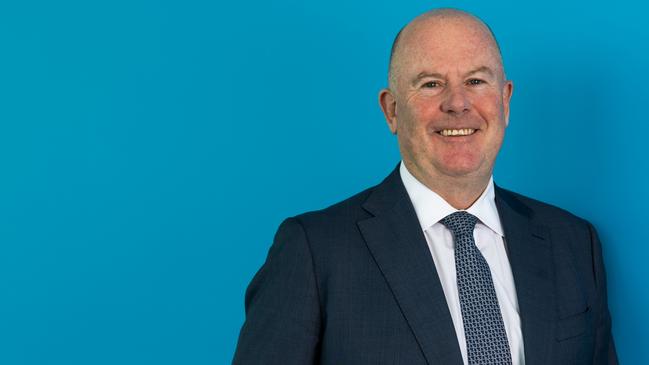AI, inflation, cyber threats keeping business leaders awake at night, says KPMG
Artificial intelligence, cyber security risks and high inflation are the red flag issues keeping Australian business leaders awake at night, according to KPMG.

Artificial intelligence, cyber security risks and stubbornly high inflation will be key issues keeping Australian business leaders awake at night in 2025.
KPMG’s annual Keeping Us Up At Night survey has found digital transformation, including use of AI, inflation and rising costs are landmark concerns for businesses over both the short and long term.
In the survey of 320 businesses, 53 per cent named dealing with digital transformation as the top challenge heading into the new year followed by 42 per cent who considered protecting and dealing with cyber risks as the prime issue.
The survey also found 39 per cent of businesses indicated controlling costs in an inflationary environment as the biggest challenge in 2025.
KPMG Australia chief executive Andrew Yates said businesses were increasingly considering technological transformation, AI and cyber as a “single critical and interconnected issue.”
Mr Yates said AI could play a key part in increasing productivity, but conceded there were a lot of unknowns about how the technology would impact on businesses and the workforce.
“It is encouraging that research indicates that returns on AI investment are either meeting, or in many cases, exceeding companies’ expectations,” said Mr Yates.
“Given the difficult state of the economy and the public finances, increasing productivity is essential for Australia to generate sustainable growth.”
But he said changes in skills and training were going to be needed with the responsibility on employers to retrain their people as AI developed further.

“There are concerns within organisations about what it means for the future of work,” Mr Yates said. “We have to make sure that people are comfortable with the pace of change and with the future of their roles. Our approach is that you’ve got to be in the traffic because it could quite seriously revolutionise the way that we all work.”
Turning to the broader economy, Mr Yates said it was not surprising that controlling costs still ranked in the top three issues challenging Australian businesses.
High core inflation was making any immediate interest rate cuts less likely, which would be a frustration for many business leaders, he said.
“Having said that, survey respondents did not indicate rate cuts would see a significant increase in their business investment in 2025,” Mr Yates said.
The seventh annual Keeping Us Up At Night survey by the Big 4 accounting firm found that digital transformation and optimisation had moved up from fourth biggest nominated challenge in 2024 to top the list of biggest issues facing business.
The survey also found rising geopolitical instability, attributed to the escalation of international trade tensions and the rising issue of tariffs, had added to the general sense of unease by Australian businesses about the global and domestic economy.
KPMG chief economist Brendan Rynne said tariff policies proposed by President-elect Donald Trump were inflationary in nature, but what was actually implemented, and when, remained unresolved. “To the extent a range of economic policies do get implemented that result in price levels for traded goods increasing globally then this will make the pathway for interest rate cuts in Australia more challenging,” Mr Rynne said.
Mr Rynne said the private side of the economy remained “incredibly weak” with low unemployment a result of high public sector employment gains.

“From an economy perspective, the number one driver that’s keeping everyone on the edge of their seat is what’s happening with inflation and what’s happening with the Reserve Bank in terms of interest rates,” he said.
“I was a bit surprised to still see that around 40 per cent of survey respondents said that they weren’t going to change their investment intentions even with a 50 basis point cut in rates and 30 per cent said they wouldn’t change even with a 75 per cent basis point cut.
“What that tells me is that the market dynamics and the fundamentals in the market are still driving those investment intentions. You might be able to get some marginal investment at the edges (if rates are cut) due to projects that are interest rate sensitive or debt cost sensitive, but fundamentally, it’s about having a strong overall economy to drive investment outcomes.”
He said despite the sustained concerns from business leaders about inflation and interest rates, businesses were starting to look for growth opportunities over the longer term.
“You’ve seen businesses lifting the importance of looking for growth and looking for revenue, not just trying to contain costs,” he said.
“The expectation is that the economy will start moving probably towards the second half of this year. So rather than everything being inward focused within a business, there’s an expectation of looking outwards to growth opportunities and new markets.”






